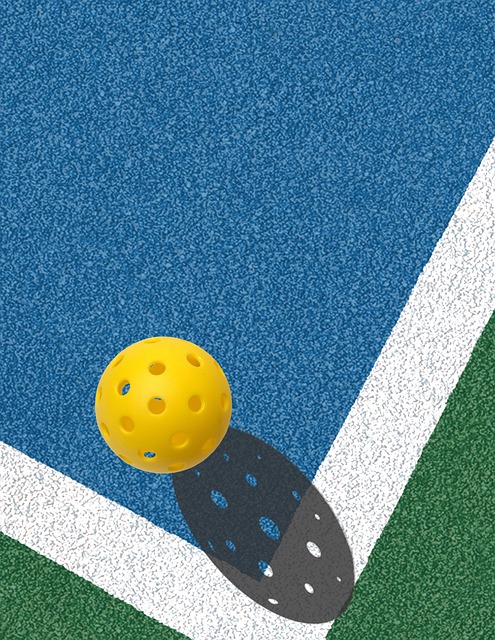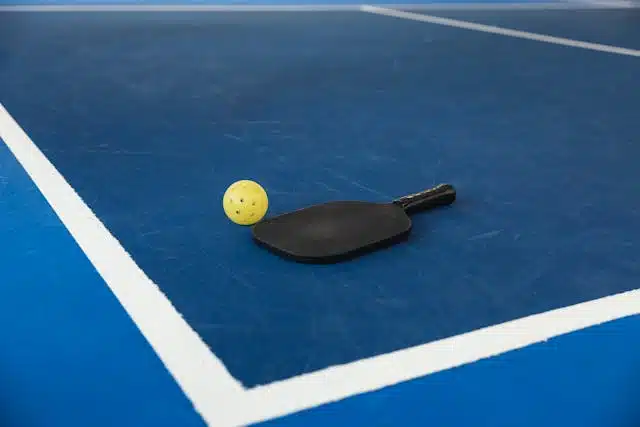Pickleball for Seniors: Benefits, Muscles Used, Safety Tips
Pickleball can be a fantastic activity for seniors, offering physical, mental, and social benefits.
This increasingly popular sport combines elements of tennis, badminton, and ping-pong, making it accessible and enjoyable for older adults.
However, to maintain overall health and prevent injuries, it’s essential to approach the sport cautiously and balance it with other fitness activities.
Unforuntately, research has indicated that pickleball has a relatively high injury rate compared to other activities, but that is largely because many pickleballers are often sedentary for months or years before starting to play.
Here are some insights and tips to help seniors enjoy pickleball safely and effectively.
Equipment Needs
Starting with the basics, you’ll need a paddle, pickleball balls, and proper footwear.
Choosing the right equipment is crucial to ensure a comfortable and safe playing experience.
- Paddle: Select a paddle that suits your grip and strength. Lightweight paddles can be easier on the wrists, reducing strain and making the game more enjoyable.
- Footwear: Ensure your shoes provide good support and traction to prevent slips and falls. For older people who plan on playing pickleball regularly, considering a pair of custom orthotics for your shoes is a great decision and can save a lot of back, hip, knee, and ankle problems.
Benefits of Playing Pickleball

Playing pickleball can improve cardiovascular health, enhance coordination, and provide a great way to socialize.
- Cardiovascular Health: The constant movement in pickleball helps boost heart health and stamina.
- Coordination: The quick reflexes and hand-eye coordination required in pickleball can help keep your mind sharp.
- Social Interaction: Pickleball is often played in a social setting, making it an excellent way to meet new people and build friendships.
However, pickleball doesn’t provide the benefits for muscular health that strength training or many other forms of fitness do because there is not much opportunity for progressive overload.
Therefore, many of the health benefits of pickleball are cardiovascular, social, or psychological.
Finding Pickleball Options
Many communities, especially those with active retiree populations, have pickleball courts and clubs.
- Local Facilities: Local community centers, YMCA facilities, and parks often offer pickleball sessions. If you’re enrolled in a Medicare plan that pays for your gym membership, you may be able to access these facilities at no extra cost since many YMCAs and community centers participate in programs like SilverSneakers or Renew Active.
- Clubs: Joining a club can provide regular play opportunities and a supportive community, fostering both social connections and consistent physical activity.
By reaching out and contacting active members of your community, I am sure that you will be able to find pickleballers near you!
Should You Take Pickleball Lessons?
Taking lessons can be highly beneficial, especially if you’re new to the sport.
As in golf, a few pickleball lessons can make a significant difference in your ability to play and the enjoyment you get from playing pickleball.
Lessons can help you learn proper techniques and strategies, reducing the risk of injury.
- Beginner Classes: Look for beginner classes specifically designed for older adults. These classes often emphasize safety, proper form, and foundational skills.
- Self-Learning: While lessons are advantageous, pickleball has a relatively low learning curve. Many retirees can begin playing without formal instruction, picking up the basics through casual play and practice.
Injury Risks and Precautions
While pickleball is relatively low-impact, injury rates can be high due to the sport’s unpredictable movements, such as quick stops, starts, and bending.
- Common Injuries: Common injuries include knee twists and ankle sprains, which can occur regardless of skill, age, or fitness level.
- Preventive Measures: To mitigate these risks, it’s crucial not to rely on pickleball as your sole form of exercise. Complement your pickleball sessions with activities that enhance flexibility, strength, and overall fitness.
- Fitness Routine: Incorporate stretching, mobility exercises, aerobics, and strength training into your routine to build a well-rounded fitness regimen and reduce injury risks.
If you approach pickleball with the right preparation and a balanced fitness routine, pickleball is one of the best sports for seniors and can provide numerous health benefits.
If you’re recovering from a previous injury or managing joint issues, physical therapy for seniors can help restore mobility and stability, making your return to pickleball safer and more effective.
When to Avoid Playing
Avoid playing during extreme weather conditions, such as very hot or cold days, as these can increase the risk of injury and discomfort.
Very hot days can cause heat stroke for seniors, while cold days are much more uncomfortable for your bones and joints,
- Health Conditions: If you have any pre-existing health conditions, consult your doctor to ensure pickleball is safe for you.
- Injuries: Avoid playing if you have any injuries that make your pickleball movements difficult or imbalanced because this can result in long-term imbalances and dysfunction.
Read Next: Safe Fitness for Seniors
This website does not provide medical advice. This website site does contain affiliate links, and purchases may earn a commission.
Read my Medical Disclaimer, Review Disclaimer, and Publishing Policies for more details. Use of this site indicates acceptance of these terms.



